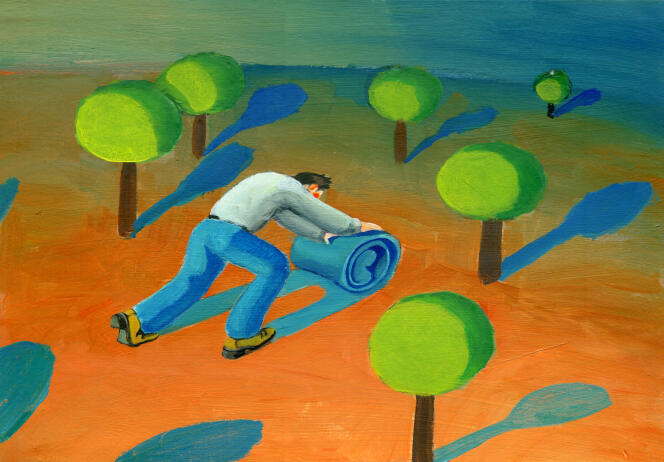
(Marc Bonomelli is an independent journalist, specializing in the study of religion and new spiritualities. The author New ways of self. Immersed among the new spiritual (Arkhê, 2022), in a monthly column analyzes the rich spirituality of our time and the way in which it is rediscovered. From “neo-druids” to “soul surfers,” these new “routes of self” seem to cut across everything from health to politics, including digital technology, personal development, and, of course, religions.)
I’m done positive combustion ? No more overdose of “toxic positivity”, this guilt-inducing belief that one should remain positive at all costs, which sociologists and psychologists Eva Illouz and Edgar Cabanas already condemned in 2017 in their works happy nacracy (First parallel, 2018)?
Today, this satiety is increasingly taking place within the vast worlds of new spirituality and personal development. So much so that the opposite current experiences real growth: working in the shadows.
In the beginning there was a shadow
In recent months, shadow work has experienced unprecedented visibility, to the extent that, on certain days, it has become trend, a strong trend on social networks like Instagram or TikTok. The term means personal “work”, with the aim of no longer running away from our dark sides, but to face them and understand them, with the aim of healing, acceptance or self-knowledge.
This idea, popularized today by authors such as Isabelle Cerf, trainer, media and author, among others, of very recent Working in the shadows. A diary that sheds light on your dark sides (Good Mood Dealer by Exergue, 256 pages, €13.90), is particularly inspired by the writings of psychoanalyst Carl Gustav Jung (1875-1961).
Known for his work on unconscious archetypes and a deep interest in mysticism, Jung conceptualized“shadow”, which refers to the parts of ourselves that are denied, unwanted in the definition of our personality, or suppressed due to fear of social rejection. Jealousy, anger, unacknowledged desires, even murderous impulses: the shadow can take on different aspects depending on individuals and context.
“I’ve been hearing about shadow work for ten years while researching neo-paganism and contemporary spirituality, especially in certain currents inspired by traditions such as shamanism or spiritualism.”, also explains anthropologist Nicolas Boissière. According to this professor at the University of Quebec, in Montreal (Canada), “the existence of this practice tends to soften the criticism leveled at the account of personal development and spirituality, accused of being too focused on positive energies”.
You still have 65% of this article to read. The rest is reserved for subscribers.

